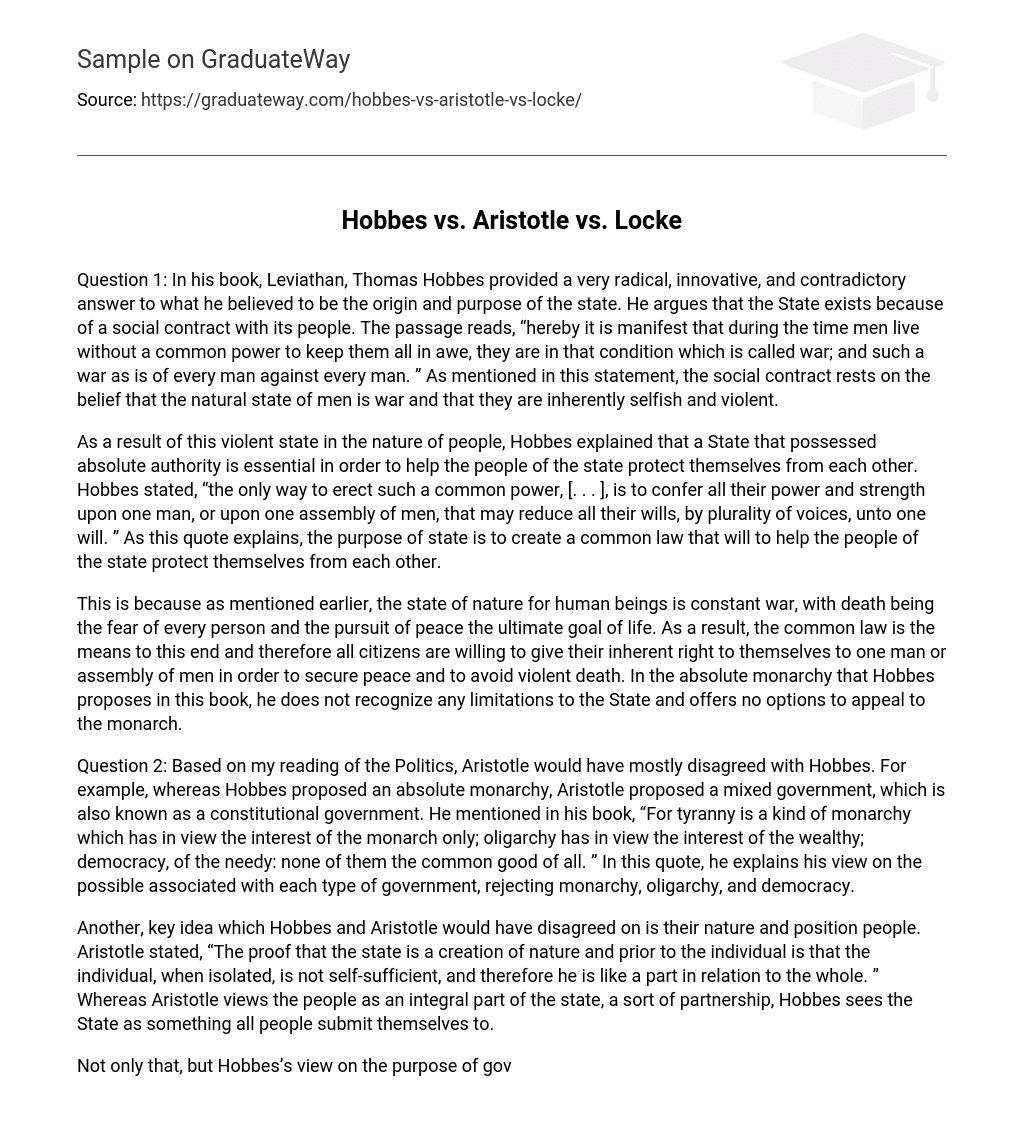Question 1: Thomas Hobbes proposed a radical and contradictory explanation about the origin and purpose of the state in his book Leviathan. According to Hobbes, the State is formed through a social contract between the government and its people. Hobbes argues that without a central authority to instill fear, individuals live in a state of war where everyone is against each other. This passage emphasizes Hobbes’ belief that the social contract is based on the idea that humans have innate inclinations towards war, selfishness, and violence.
Hobbes claims that in order to safeguard citizens from their inherently violent nature, a State must possess absolute authority. He argues that it is crucial for the wills of the people to be consolidated and aligned through the establishment of a common power, whether it consists of an individual or a group. By doing so, the State can implement laws that foster mutual protection among its residents.
The state of nature for humans is defined by constant war and the fear of death. The ultimate goal in life is to seek peace. To achieve this, the common law serves as the means, therefore citizens willingly give up their inherent rights to a single leader or group of leaders. This ensures peace and prevents violent death. In Hobbes’ absolutist monarchy, there are no limitations on the power of the State and no possibilities for citizens to appeal to the monarch.
Question 2: Aristotle and Hobbes have differing views on politics. While Hobbes supports absolute monarchy, Aristotle prefers a mixed government or constitutional government. In his book, Aristotle explains that tyranny focuses solely on the monarch’s interests, oligarchy favors the wealthy, and democracy caters to the needy, with none of them prioritizing the common good for all.
Hobbes and Aristotle hold contrasting perspectives on the nature and role of individuals. According to Aristotle, the state is a product of nature that precedes individuals. He asserts that individuals are not self-sufficient when isolated, making them comparable to parts in relation to the whole. Conversely, Hobbes views the State as something individuals willingly subject themselves to. In contrast, Aristotle considers people to be an integral part of the state, similar to a partnership.
Both Hobbes and Aristotle have contrasting perspectives on the purpose of government. According to Hobbes, the government functions as a safeguard against the inherent violence in people’s natural state. Conversely, Aristotle contends that an ideal State should aim for the common good. In Hobbes’ concept, the ruler possesses absolute power and authority over all members of society, including determining life or death. In contrast, Aristotle believes individuals have the right to self-defense and to protect their own well-being and wealth.
Aristotle acknowledges the limitations of State power, in contrast to Hobbes. John Locke shares a similar belief with Hobbes that government is formed through a social contract by the people and its purpose is to protect their natural rights of life, liberty, and property. However, Hobbes and Locke have different views on the state of nature. According to Hobbes, individuals are equal and independent; they should not harm others’ life, health, liberty or possessions. He rejects any subordination that leads to mutual destruction. Conversely, Locke defines the state of nature as one where individuals have freedom, equality, and autonomy.





